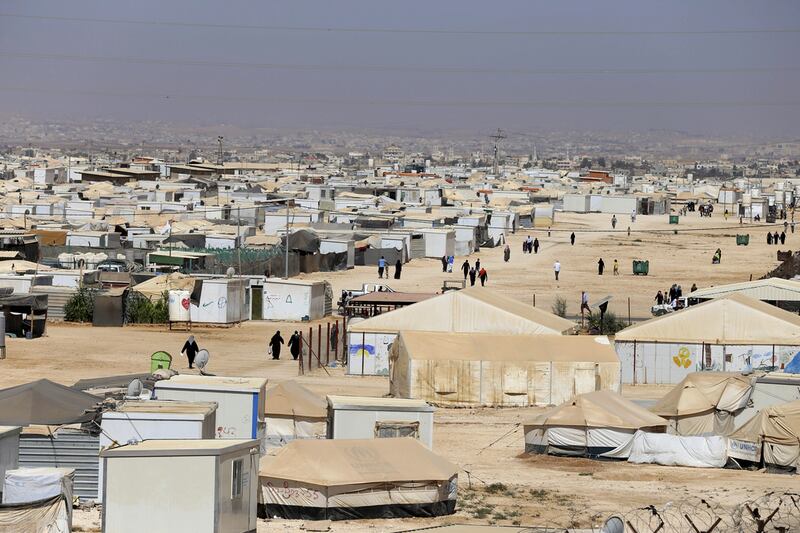Nearly 81,000 people call the Zaatari refugee camp home. In three years, the camp has been transformed from a patch of desert in northern Jordan into the country’s ninth largest city and the largest Syrian refugee camp in the region. As the civil war across the border enters its fifth year, the Zaatari camp doesn’t show any signs of shrinking in size. What to do about this unavoidable reality is one of the most pressing questions facing Jordan and, by extension, the Middle East as a whole.
Since the camp was created, Amman has tried to keep it contained and separate from the rest of Jordanian society. By contrast, Turkey – admittedly a much larger country – has provided many Syrian refugees with access to health care and even work permits. The Turkish government has spent more than $4 billion (Dh14.7bn) on the refugees and infrastructure in refugee camps. Jordan is not in a position to channel the same amount of funds but the European Union, as part of a programme to help Syria’s neighbours, could help shoulder the burden.
Infrastructure projects such as new water and sewerage systems are overdue and badly needed, but the burden of running the camp shouldn’t fall directly on the shoulders of Jordan or the United Nations. Rather, the EU is in the right position to help with these initiatives. This sober anniversary is a perfect time for renewed European assistance.
With the EU constantly fighting to keep refugees and migrants away from its borders, camps like Zaatari are the only option for many Syrians fleeing the fighting at home. The Syrian civil war will not end soon and the situation in Zaatari is so bad that dozens of refugees are reportedly returning to Syria each week rather than face a life of poverty in limbo in the camp. Put simply, the EU has a responsibility to help those in refugee camps beyond the desolate state they are experiencing. While the camp might be in a forgotten corner of desert and the dynamics of the situation are extraordinarily complex, the Syrian refugees who call Zaatari home must not be left alone in their time of need.





